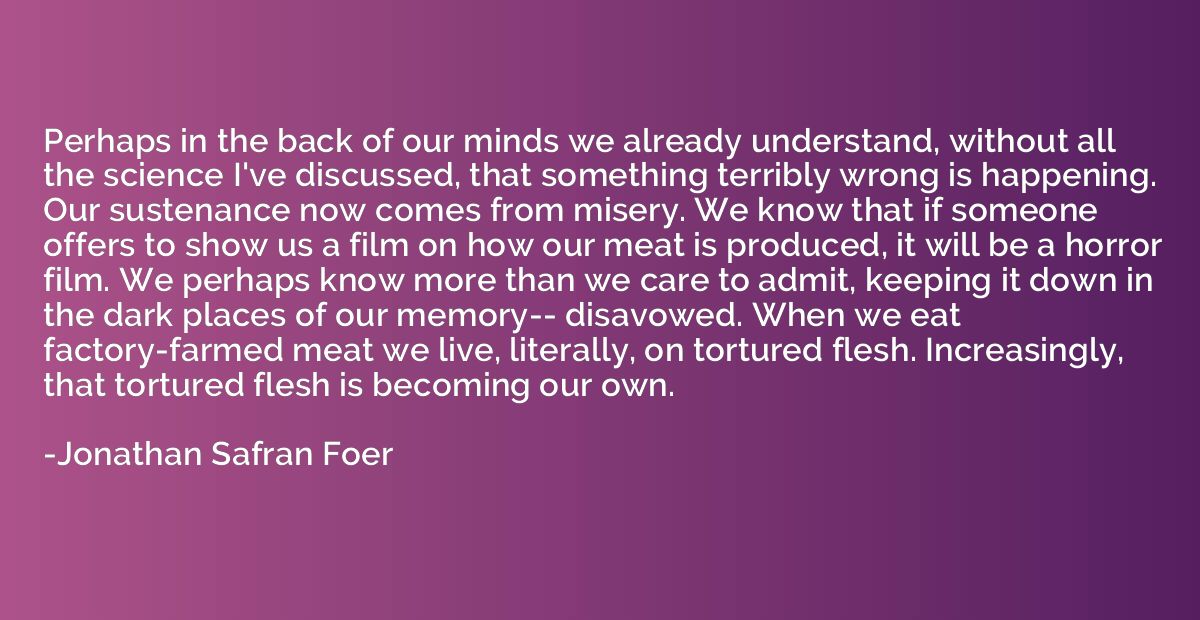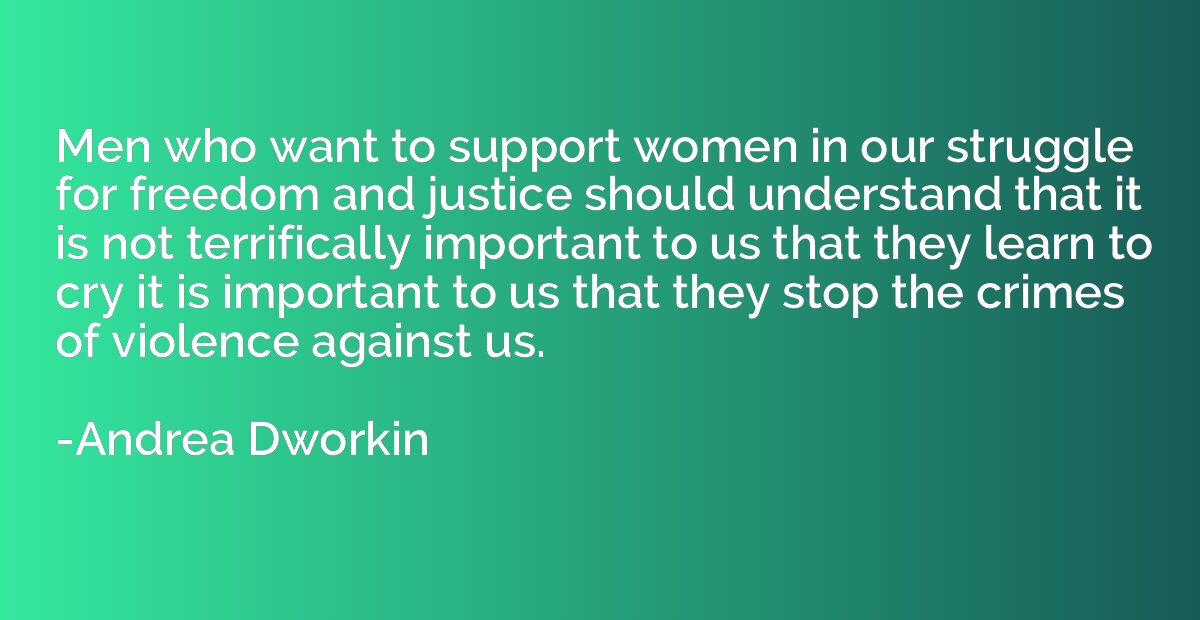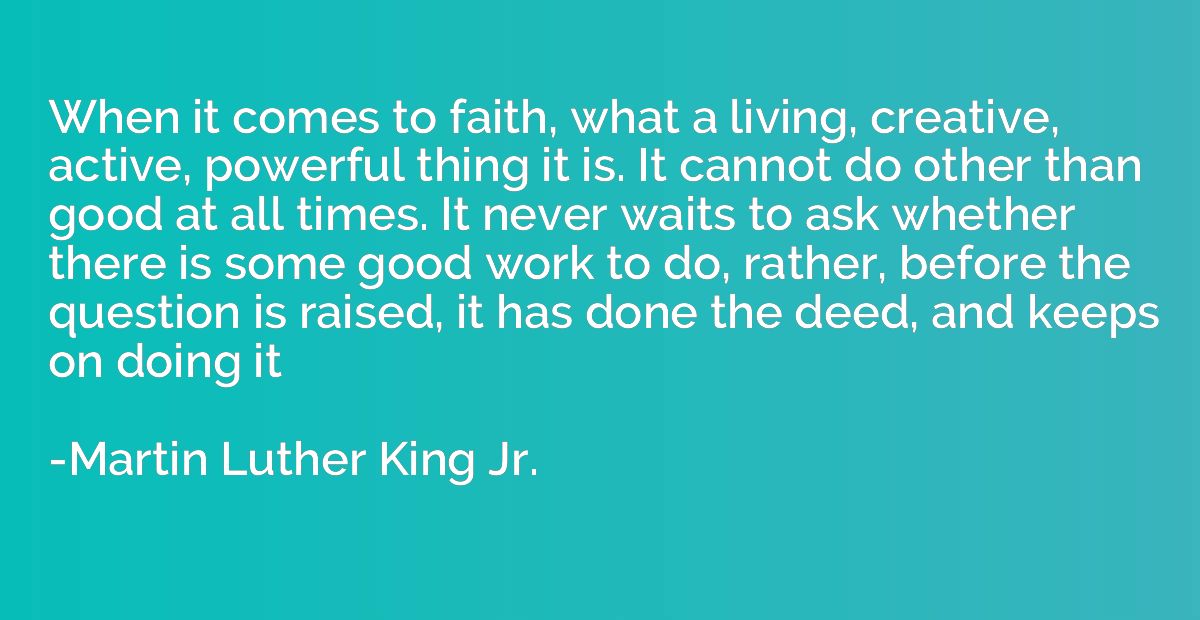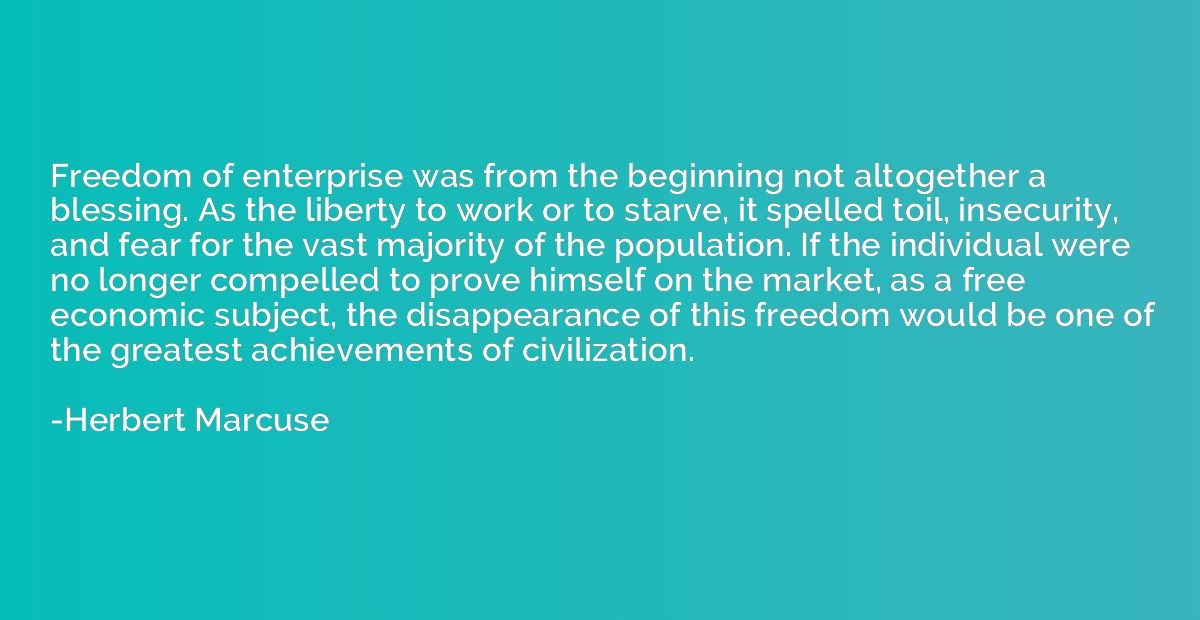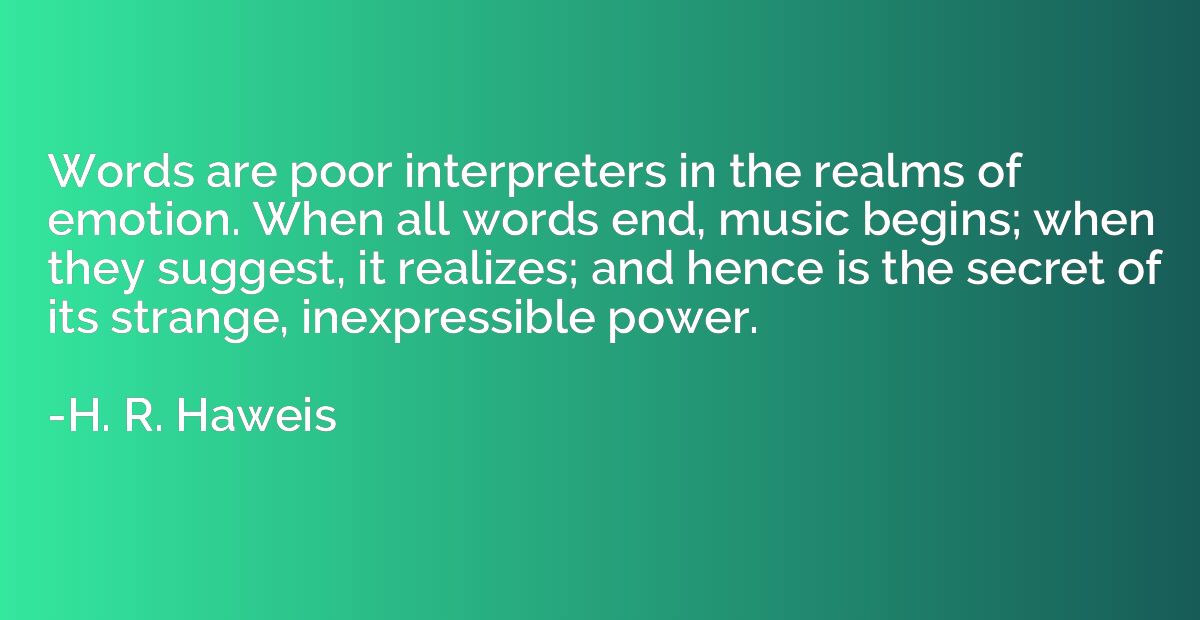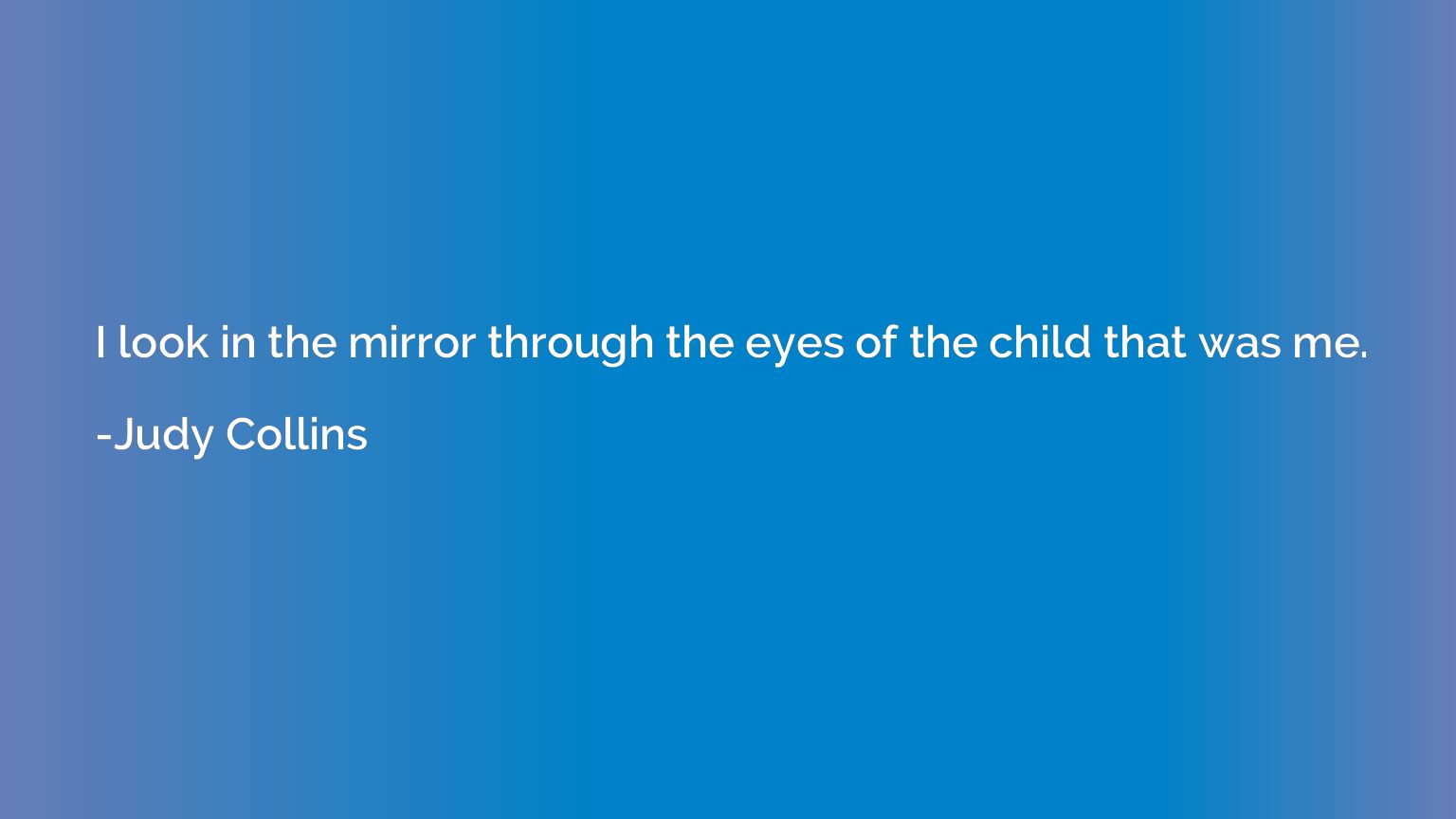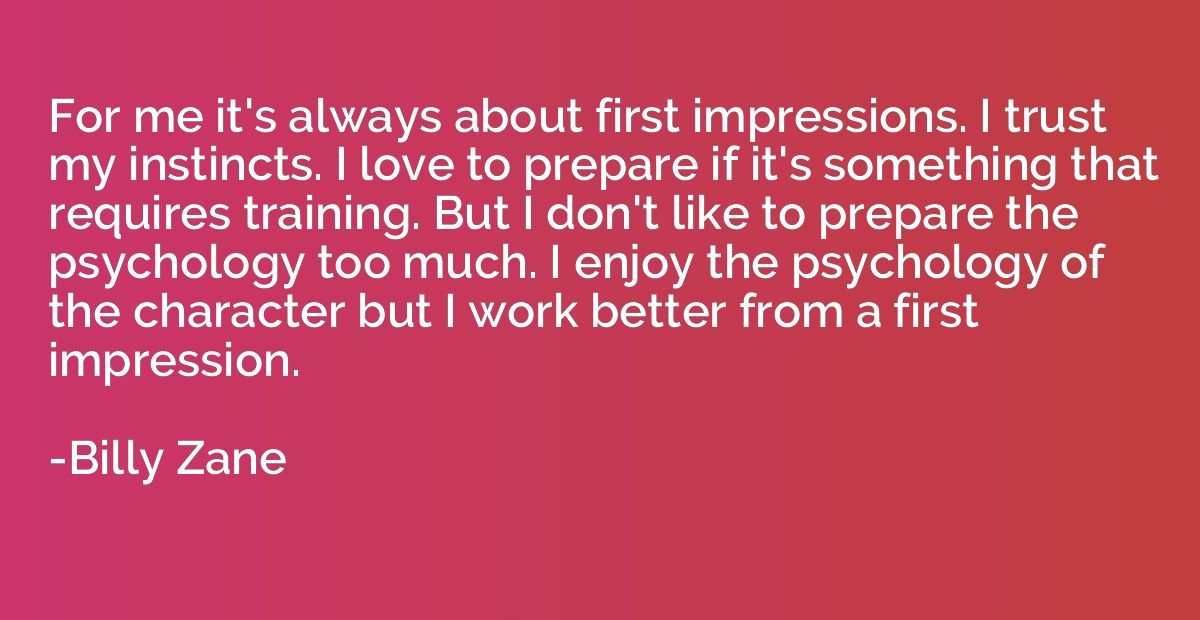Quote by Eric Parslow
Absence of communication between necessarily linked parties ensures eventual conflict.
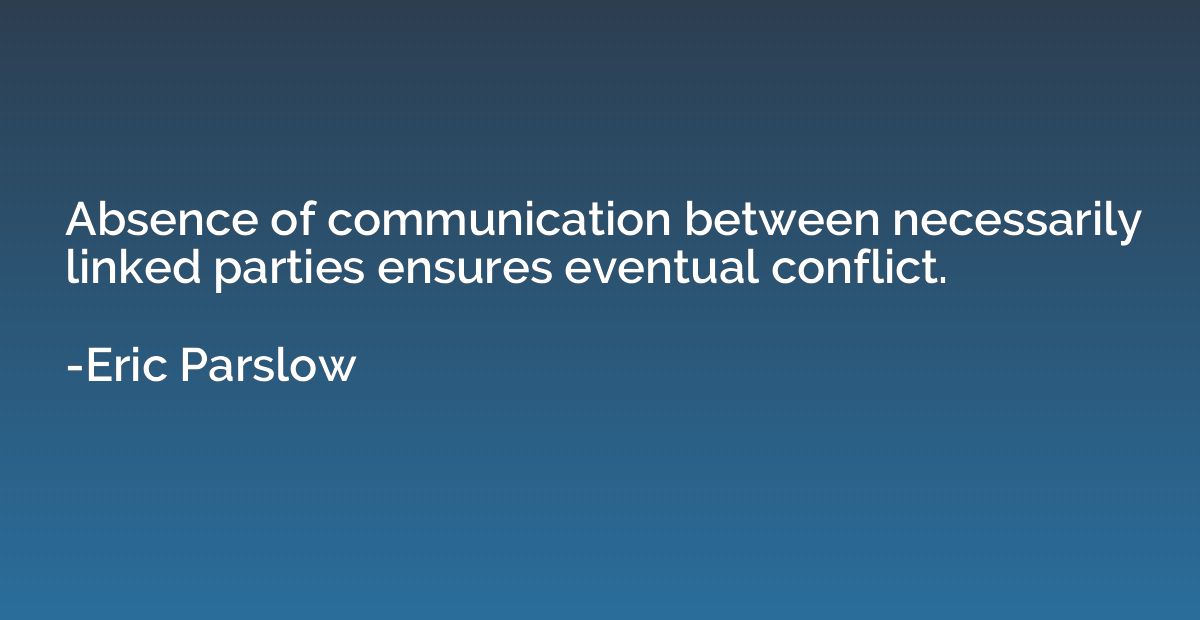
Summary
This quote emphasizes the importance of communication in fostering harmony and preventing conflict. When two parties that are interconnected or depend on each other fail to communicate effectively, misunderstandings can arise, expectations can go unmet, and resentment may build over time. This lack of communication creates a breeding ground for conflict, as unresolved issues can lead to tension and hostility. To prevent conflicts, it is crucial for individuals and groups to maintain open lines of communication, allowing for the exchange of ideas, mutual understanding, and the resolution of issues before they escalate.
Topics
Communication
By Eric Parslow



